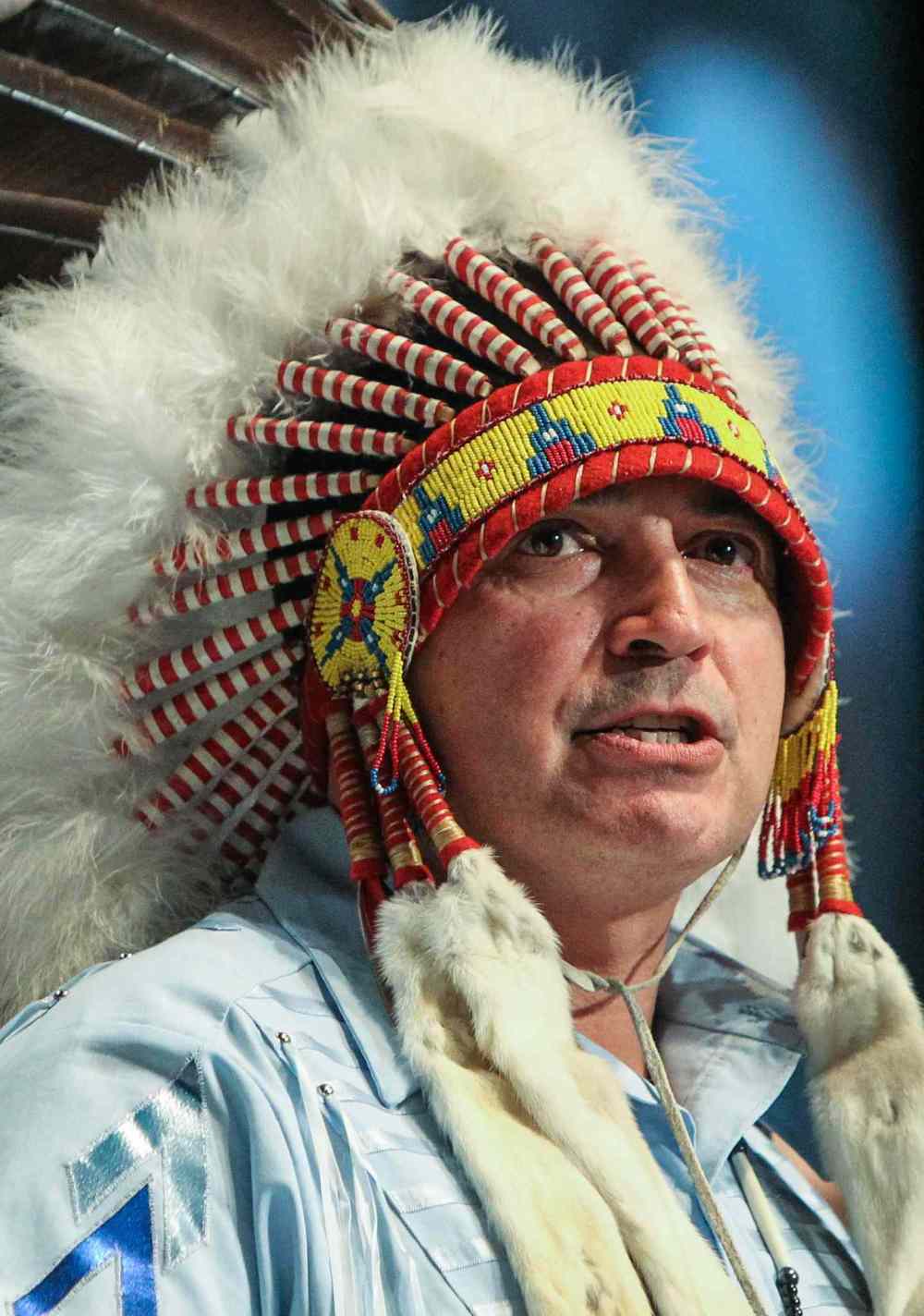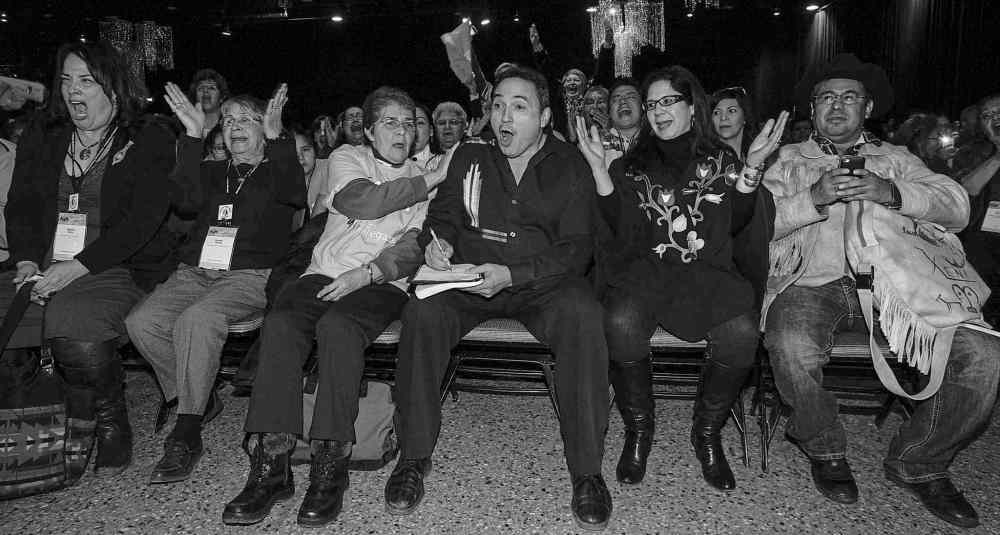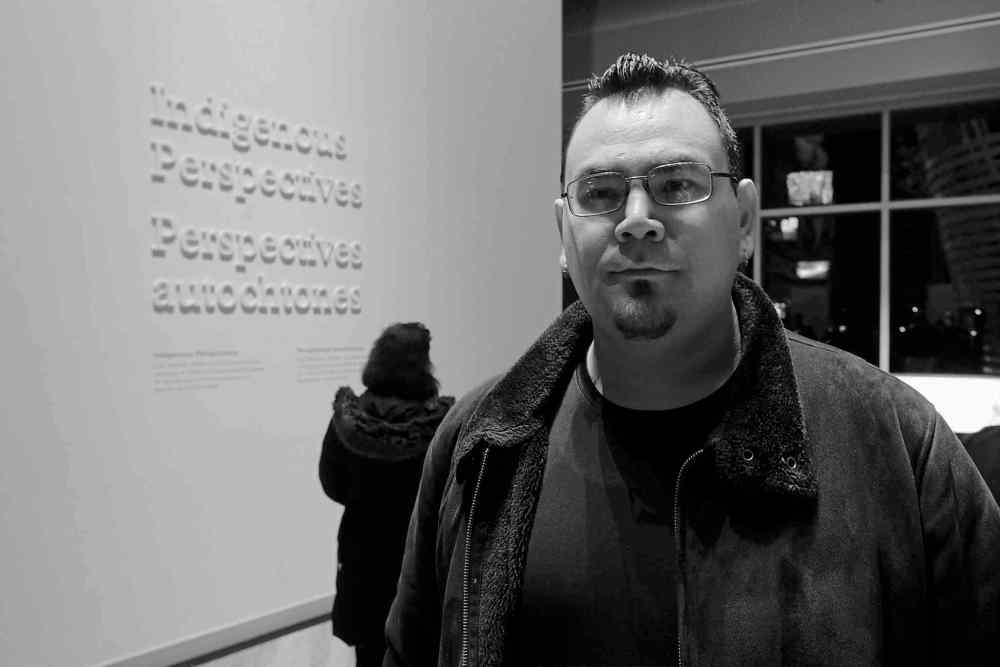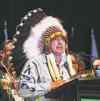New chief, old issues
Activist calls for grassroots input after AFN vote
Advertisement
Read this article for free:
or
Already have an account? Log in here »
To continue reading, please subscribe:
Monthly Digital Subscription
$1 per week for 24 weeks*
- Enjoy unlimited reading on winnipegfreepress.com
- Read the E-Edition, our digital replica newspaper
- Access News Break, our award-winning app
- Play interactive puzzles
*Billed as $4.00 plus GST every four weeks. After 24 weeks, price increases to the regular rate of $19.00 plus GST every four weeks. Offer available to new and qualified returning subscribers only. Cancel any time.
Monthly Digital Subscription
$4.75/week*
- Enjoy unlimited reading on winnipegfreepress.com
- Read the E-Edition, our digital replica newspaper
- Access News Break, our award-winning app
- Play interactive puzzles
*Billed as $19 plus GST every four weeks. Cancel any time.
To continue reading, please subscribe:
Add Free Press access to your Brandon Sun subscription for only an additional
$1 for the first 4 weeks*
*Your next subscription payment will increase by $1.00 and you will be charged $16.99 plus GST for four weeks. After four weeks, your payment will increase to $23.99 plus GST every four weeks.
Read unlimited articles for free today:
or
Already have an account? Log in here »
Hey there, time traveller!
This article was published 11/12/2014 (3961 days ago), so information in it may no longer be current.
A new national chief might bring the same old stalemate for the Assembly of First Nations, and that could spark new protests countrywide.
That’s the worry of Clyford Sinclair, an activist from Pukatawagan First Nation who “raised a ruckus” on the convention floor at the AFN’s gathering this week in Winnipeg, demanding more input from grassroots people instead of just chiefs.
Calling him “Atleo 2.0,” Sinclair is not hopeful newly elected national chief Perry Bellegarde will reform the AFN to give average First Nations people more say in elections, policy decisions and negotiations with Ottawa, which have all but stalled.

He warned that an ineffective AFN that speaks only for chiefs and not the grassroots could spark another round of Idle No More protests, especially if progress on long-standing grievances over treaty rights and environmental issues continue to stall.
“It has to happen really soon,” said Sinclair, a University of Winnipeg student. “You’re starting to see a very angry, displaced population. And I’m one of them.”
Bellegarde, Saskatchewan’s regional chief, won a decisive, first-ballot victory Wednesday, earning the support of 63 per cent of chiefs. Bellegarde follows former national chief Shawn Atleo, who resigned amid controversy over his support for Ottawa’s on-reserve education reform and amid criticism he was too beholden to the Harper government.
Bellegarde’s 291 votes bested Quebec’s Ghislain Picard, who received 136 votes and Ontario’s Leon Jourdain, who earned 35 votes.
Most of the 50-plus Manitoba chiefs who attended the gathering at the convention centre supported Bellegarde, including St. Theresa Point Chief David McDougall, who praised Bellegarde’s commitment to the treaties and his willingness to engage both the grassroots and the federal government.
With a short oath, an eagle feather and a talking stick from the British Columbia chiefs, Bellegarde was sworn in Wednesday and used his victory speech to ask repeatedly for unity among members of the AFN.
He committed again to pushing for a national inquiry into missing and murdered aboriginal women and pledged to resist attempts by Ottawa to impose legislation.

“No longer can Canada start promoting policies that are not based on recognition of aboriginal rights and title,” said Bellegarde. “For us, it’s still unfinished treaty business.”
He also spoke directly to Canadians, saying First Nations will oppose any attempt to develop resources, including pipelines, that damage traditional lands unless bands consent and are part of revenue-sharing agreements.
“The values of fairness and tolerance, which Canada exports to the world, is a lie when it comes to our people,” he said. “Canada is Indian land.”
Bellegarde also gave a shout-out to the issue of Shoal Lake 40 First Nation, isolated and left without clean water by Winnipeg’s aqueduct.
Jourdain, the third-place candidate, earned a smattering of boos during his concession speech, in which he said Prime Minister Stephen Harper would be celebrating Bellegarde’s victory.
“To those who have gone and maintained the road to our own demise, this will haunt us all,” said Jourdain. “Assimilation has done what it’s supposed to do. The Indian Act has penetrated the hearts of our leaders… This was an Indian Act vote.”
Manitoba Grand Chief Derek Nepinak has also been a vocal critic of the AFN’s structure, saying it’s little more than a national version of the band-level governance rules imposed by the much-hated Indian Act.

Sinclair agreed, but said even less will get done to solve indigenous issues if Ottawa is forced to deal with 600-plus chiefs one-on-one.
“The idea of the AFN is a powerful one, a symbol of unity. I don’t want that to dissolve.”
maryagnes.welch@freepress.mb.ca
History
Updated on Thursday, December 11, 2014 7:20 AM CST: Changes photo, adds video


